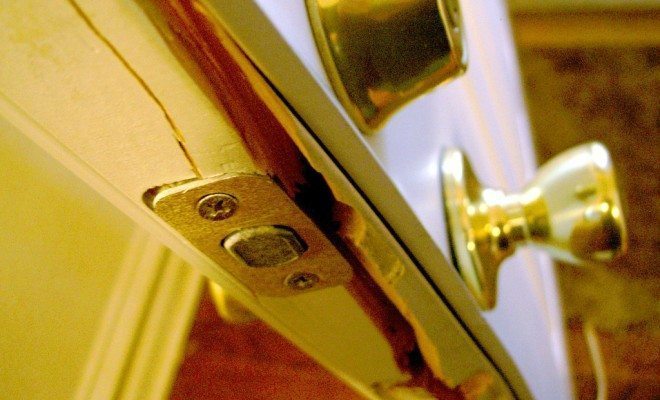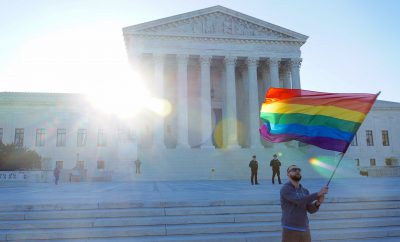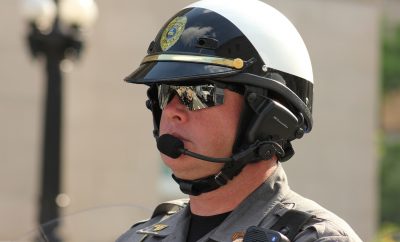 Image courtesy of [Tim Samoff via Flickr]
Image courtesy of [Tim Samoff via Flickr]
News
The Elkhart Four Await Indiana Supreme Court Decision
The Dzhokhar Tsarnaev and Aaron Hernandez trials have dominated courtroom coverage in recent months. But with guilty convictions being handed down in both cases and Tsarnaev’s sentencing still pending, there’s a case awaiting a decision from the Indiana Supreme Court that deserves America’s attention for a while–the Elkhart Four case.
The “Elkhart Four” was the nickname given to four teenagers from Elkhart County, Indiana who in 2012 were charged with murder after their fifth accomplice, Danzele Johnson, 21, was shot. Johnson was killed by the scared homeowner when the group attempted to burglarize what they thought was an empty home. Levi Sparks, now 20; Jose Quiroz Jr., 19; Blake Layman, 18; and Anthony Sharp Jr., 20, are each currently serving a five-decade sentence in prison, having become convicted murderers without ever killing anyone. If you’re asking how that could even be possible, the answer is a charge called felony murder.
They didn’t kill anyone, but the law says they’re murderers. My story on the #ElkhartFour coming on Sunday. @indystar pic.twitter.com/6dJ4P2UYFS
— Kristine Guerra (@kristine_guerra) April 17, 2015
Felony murder dictates that if someone dies in the commission or attempted commission of a felony everyone responsible for the felony can be charged with first-degree murder. When trying a felony murder case, the prosecutor does not need to prove there was intent to commit a murder, just intent to commit the initial crime–in this case the burglary.
What makes the Elkhart Four case so strange is that in most states felony murder can only be charged if an innocent person is killed, not if the person who is killed is also a perpetrator.
Timothy O’Neill, a law professor at John Marshall Law School in Chicago told the Indianapolis Star,
It’s one thing to say you commit a robbery or a theft. You’re not saying the person is a completely innocent person. Blameworthiness for theft doesn’t necessarily turn a person into a murderer. There’s a disconnect.
In October Layman, Sharp, and Sparks asked for their cases to be transferred to the Indiana Supreme Court. On February 26, 2015 the Supreme Court held oral arguments on the Elkhart case, but the justices have yet to decide whether or not to rule on the case. Quiroz, who was the only one of the four to plead guilty to the charges, has never asked the Court of Appeals to overturn his conviction.
According to the Indianapolis Star, Indiana Public Defender Council Executive Director Larry Landis finds the felony murder law unjust and plans to push for reformative legislation next session, but he admits that “legislators are not likely to support a bill that, in essence, helps people who have committed a crime.” Landis said,
It’s much safer to sponsor a bill that increases the penalty for a crime. No one has ever lost an election for supporting a law to enhance penalty on a criminal.
Now we’re all waiting to see what the Indiana Supreme Court will do. If it decides to rule on the case and grants three of the Elkhart Four an appeal, the decision would give ammo to critics lobbying for the law’s repeal. While the felony murder law was intended to hold people accountable for committing dangerous acts that result in someone’s death, its misses the mark when individuals aren’t culpable. It will be interesting to see what the state Supreme Court decides in this case, but there’s no justice in sentencing teen boys to spend most (if not the rest) of their lives behind bars as convicted murders without even killing anyone.








Comments